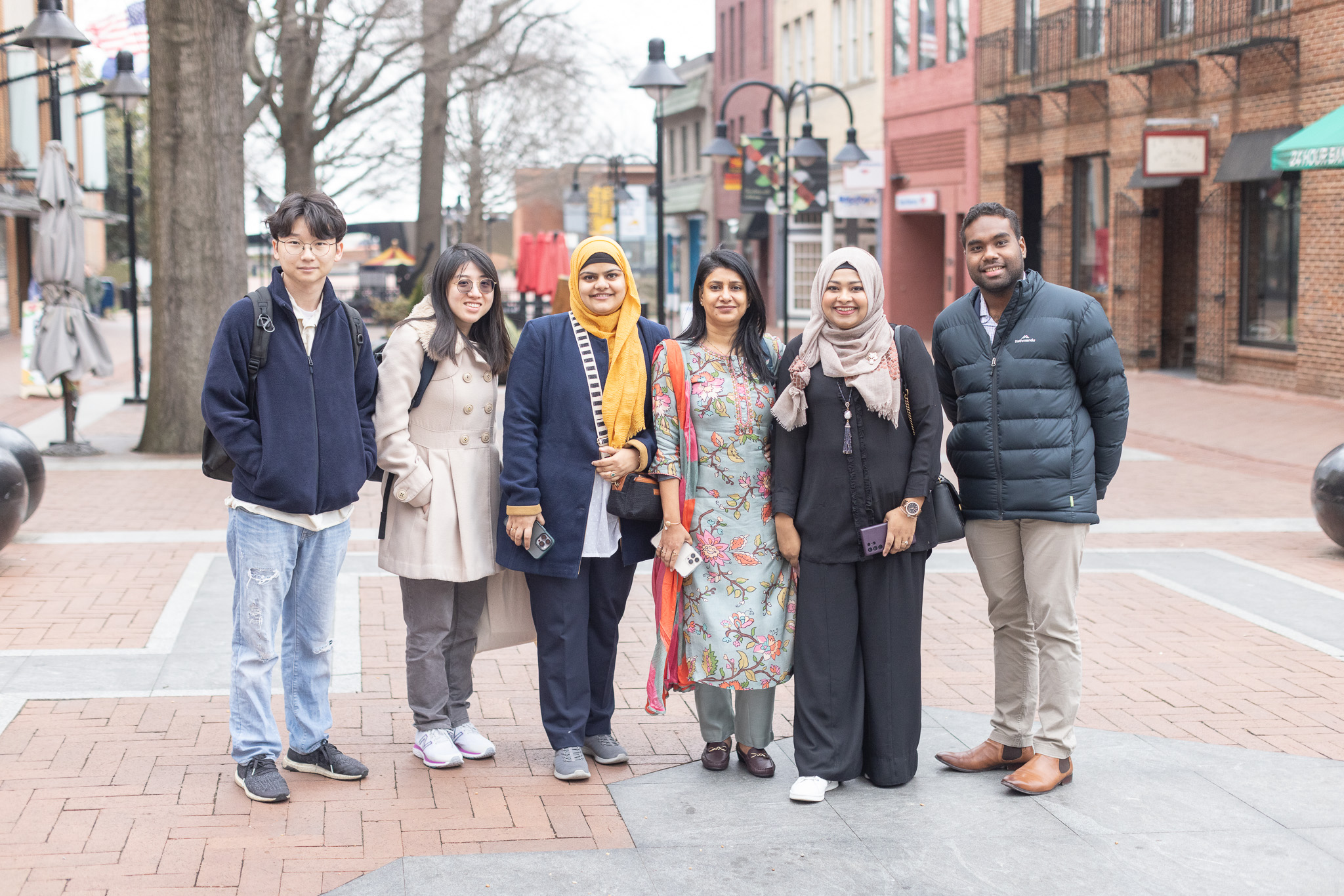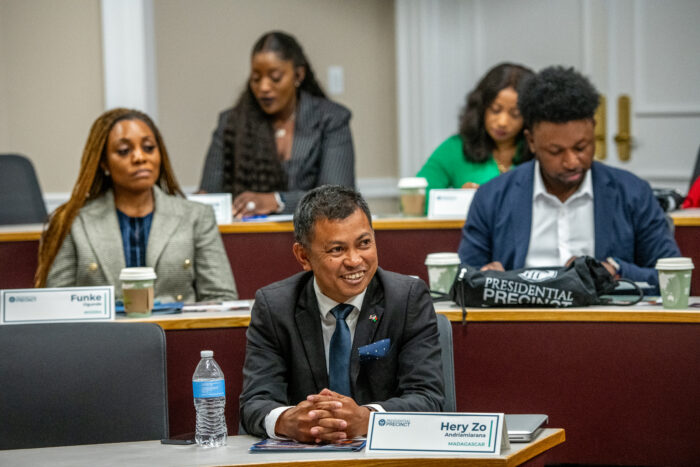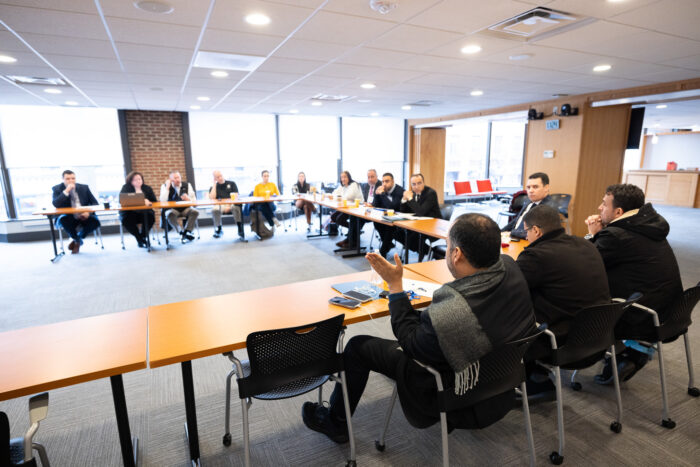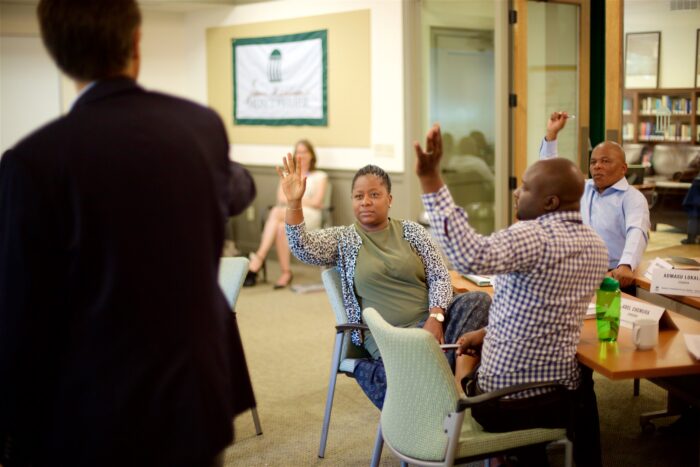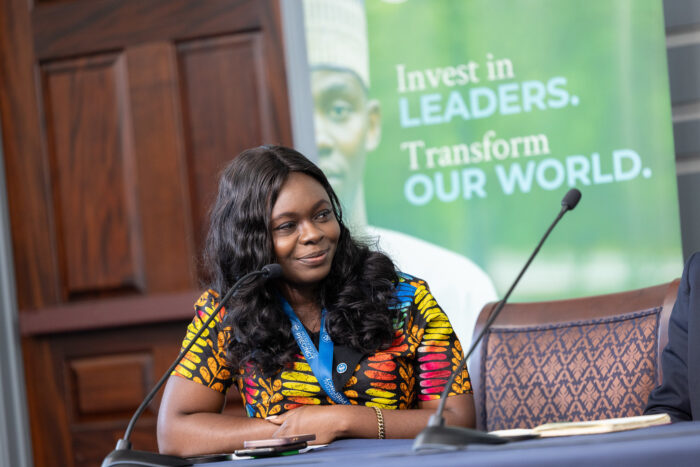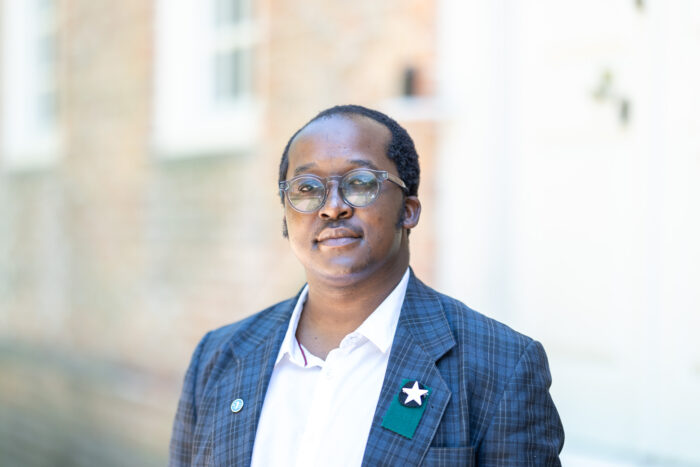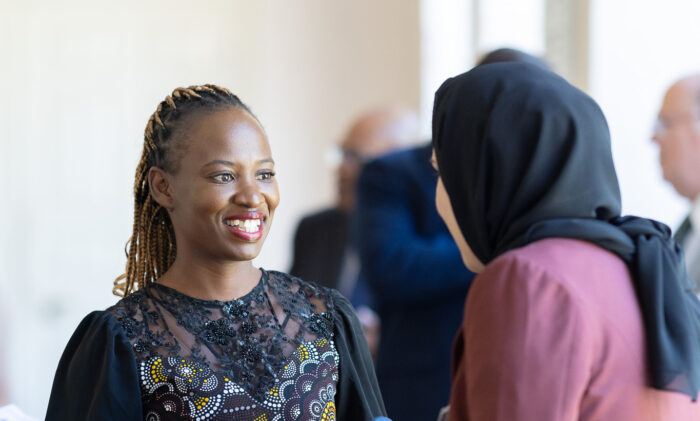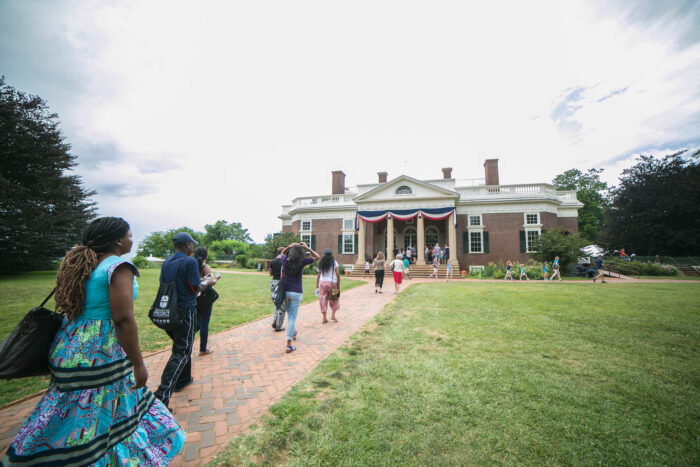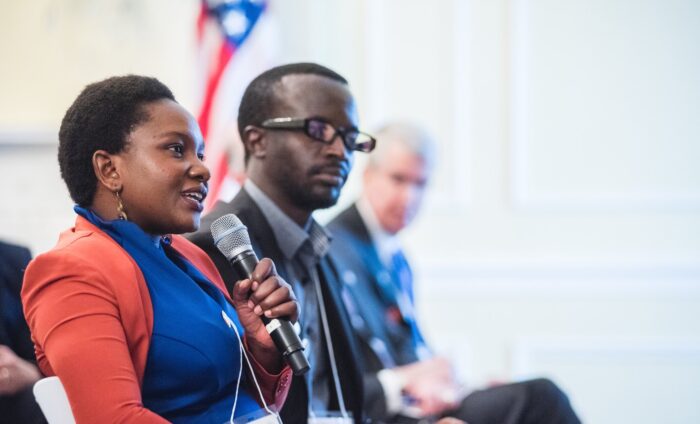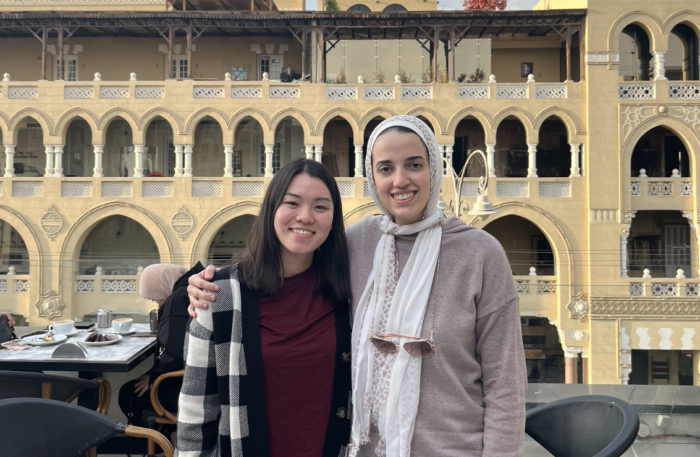Recent IVLP programs spark timely conversations on elections in democracies worldwide
Headlines are abundant: 2024 is already proving to be a big year for elections. According to TIME magazine, “More voters than ever in history” will head to the polls as part of elections in about 1/3 of all countries worldwide. This includes 7 out of the world’s 10 most populous countries.
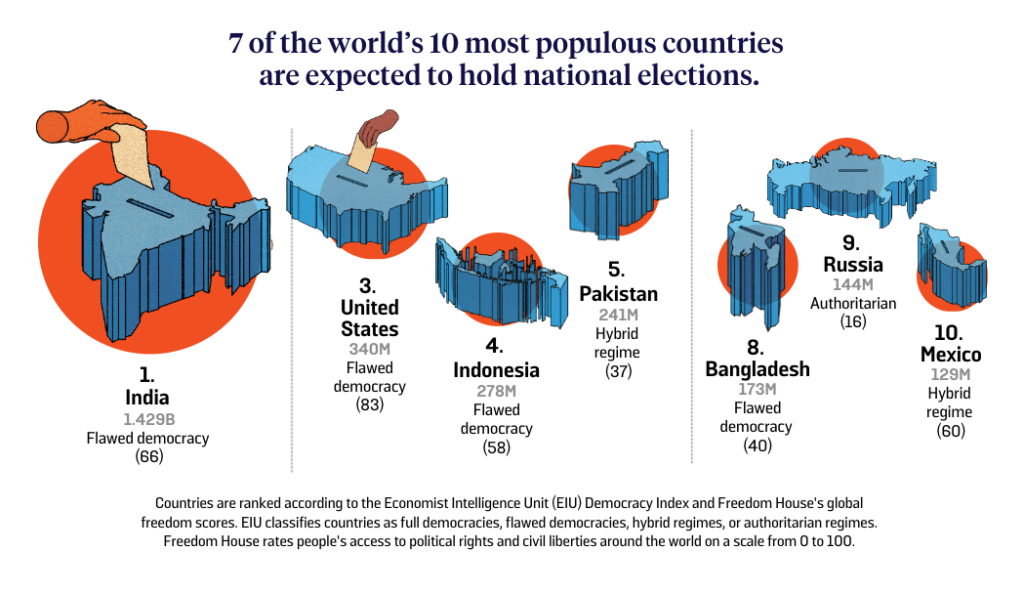
In each of these countries come unique challenges. Just last week, Russia completed its Presidential election with hardly a guise of a democratic process. Burkina Faso may not even follow through with its election, despite current leadership that was established by coup in 2022. And in the United States, we approach the presidential rematch that few had hoped for – bringing with it concerns of authoritarianism, voter apathy, and fierce polarization.
Two recent Presidential Precinct programs have created space for timely discussion around elections and the electoral process in global democracies. Participants from countries across Asia spent a total of two weeks in conversation with Charlottesville community partners across these two International Visitor Leadership Program (IVLP) visits.
With special thanks to all who joined us to share their perspective and learn from our visitors, we’ve highlighted just a few program engagements below that provide snapshots into our time with these incredible visiting leaders:
Local Media: NBC29 and the Daily Progress
NBC29 is the leading television news station in Charlottesville, Virginia. News Director David Foky shared about NBC29’s work to stay engaged with audiences while also maintaining a sustainable business model. He reflected on the crucial freedoms that news outlet’s like NBC29 enjoy when they decide what news to cover: “I don’t have a government censor. If you’re annoying the government, in my business, you’re probably on the right track.”
Visitors took part in a generous tour of the NBC29 studio. According to David, local news is “a pillar of democracy, a light shining on dark corners.”
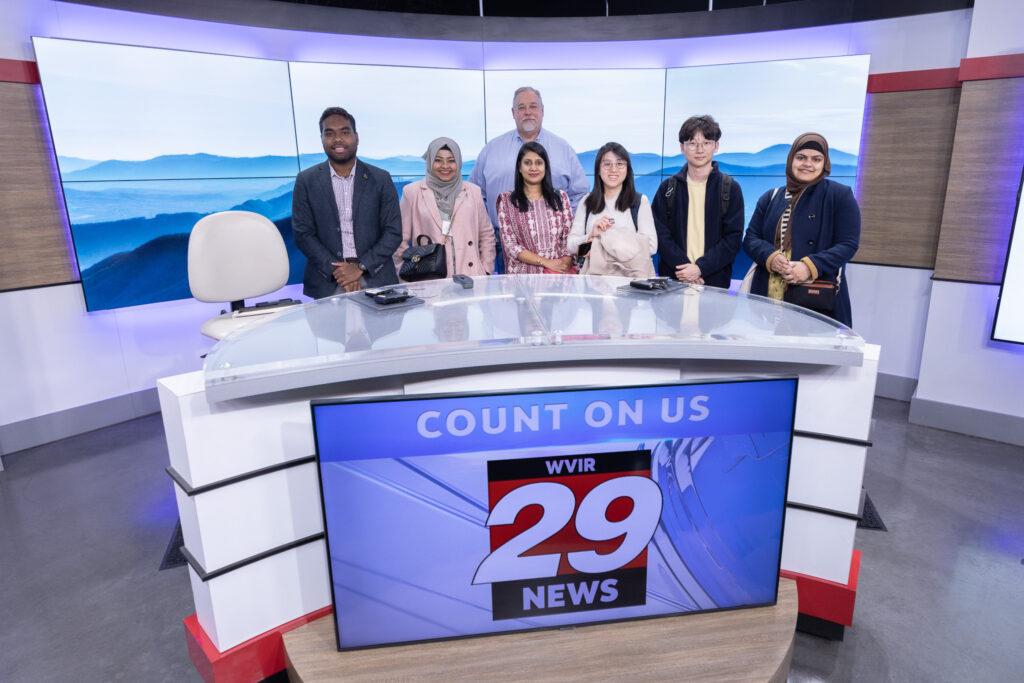
Jason Armesto is a government and politics reporter with the Daily Progress, Charlottesville daily newspaper. Like David, he discussed the challenges of doing more with less and staying relevant to area community members. Jason shared that the inspiration for his work comes from a belief in the need for an informed populace to make informed decisions. “Constituents can write to a representative asking them to explain a decision and sometimes won’t get a reply. When I [Jason] ask, I get a reply. That is a privilege of my profession.”
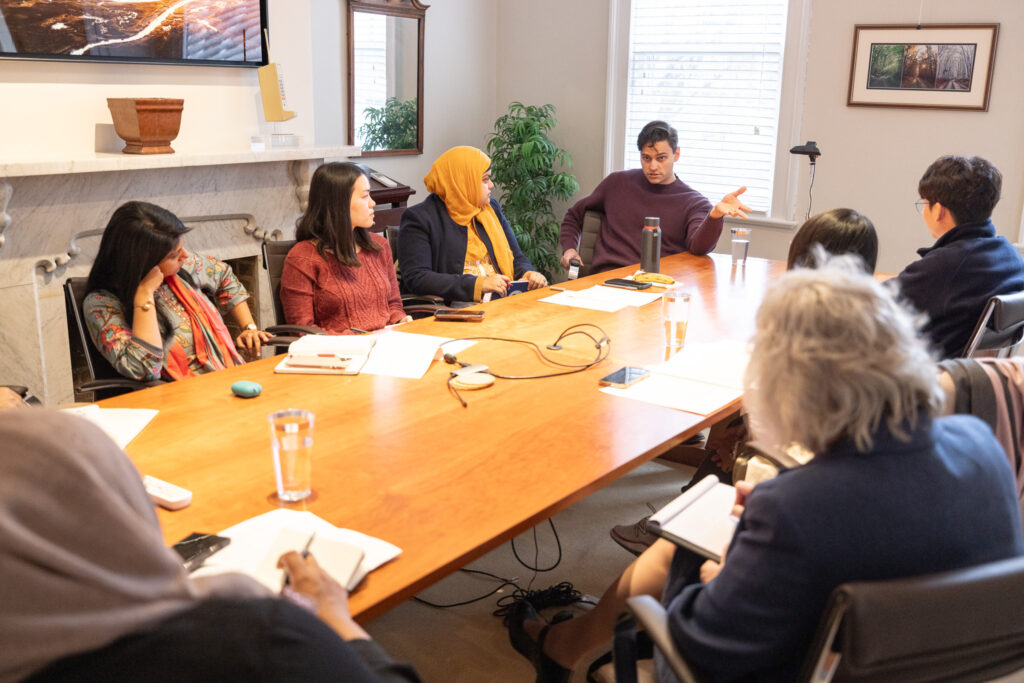
Members of the Student Advisory Council for the Karsh Institute of Democracy
This session took place on Election Day 2023, after visitors made several visits to observe area polling stations. In conversation with University of Virginia students, visitors identified a variety of similarities and differences in their own experience of elections. This included growing themes of polarization – over Russia’s invasion of Ukraine, Israel’s attacks in Gaza, or even allegiance to area political parties. All agreed that civic education is the ultimate remedy to bring factions together.
A visitor from Kazakhstan shared some optimism: “When we were students, we could not even express political views. It was dangerous to your life. Opposition politicians were killed. Now we see a more positive dynamic. Due to social media and globalization – young people can express themselves and their opinions.” A more recent challenge is ensuring that access to these platforms of expression is widely available. “It’s still a small percentage involved, mostly urban youth, educated students with a particular opportunity to learn about the world.”
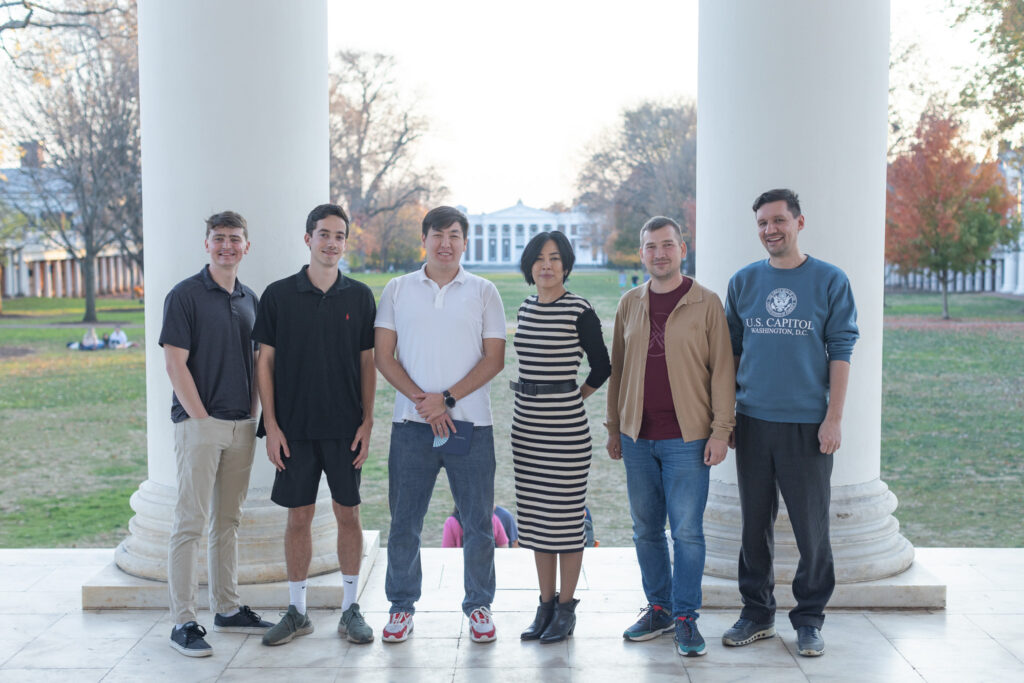
Charlottesville Area Chapter of the League of Women Voters
Visitors from Kazakhstan came together with leaders in our local League of Women Voters at the University of Virginia’s Center for Politics. Together, they offered encouragement from many years of experience in advocacy and voter mobilization.
Visitors shared that they expected to see more competition in local elections at the polls. “In Kazakhstan, the government wouldn’t allow certain people to run. But in the U.S., it seems like people don’t want to run. They don’t want protests or agitation against them.” This pointed back to the key role of the League of Women Voters – to remind people to vote, to educate them around key issues that candidates stand for and against, and to protect voting rights of individuals in the community.
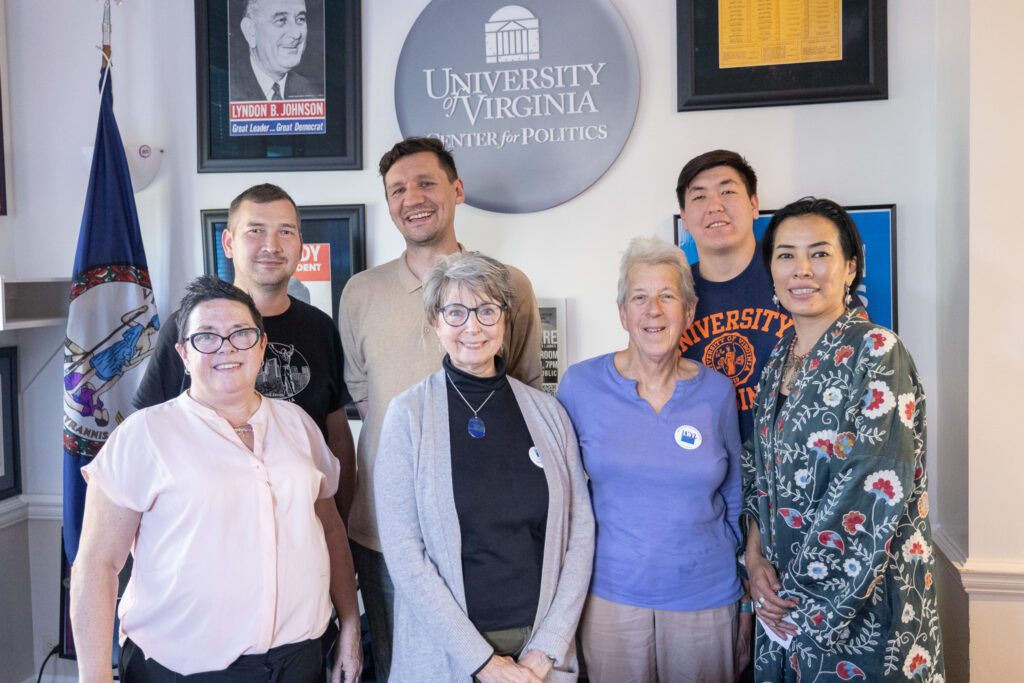
Local Government Representatives: City of Charlottesville Police & Sherriff, Albemarle County Elections Officials
Albemarle County, the local jurisdiction surrounding the City of Charlottesville, has 30 polling stations for its residents. Jim Heilman of the County Electoral Board and John Shepherd, the County’s Chief Election Officer, walked visitors through the details of the local electoral process, including the parameters of the National Voter Registration Act and the Help America Vote Act.
The specific idea of petitioning for signatures to get on a local ballot stood out as a unique feature, not often seen by visitors. The group also discussed the value of offering provisional ballots, ultimately in an effort to include all qualified voters in the election.
Conversations with area law enforcement reminded all of us how important it is that those participating in an election feel safe – “to give people time and space to exercise their First Amendment rights.” Charlottesville Police Chief Kochis and Charlottesville Sheriff Brown described their commitment to keeping in touch with the community and building trust by “showing up, not just when something bad happens.”
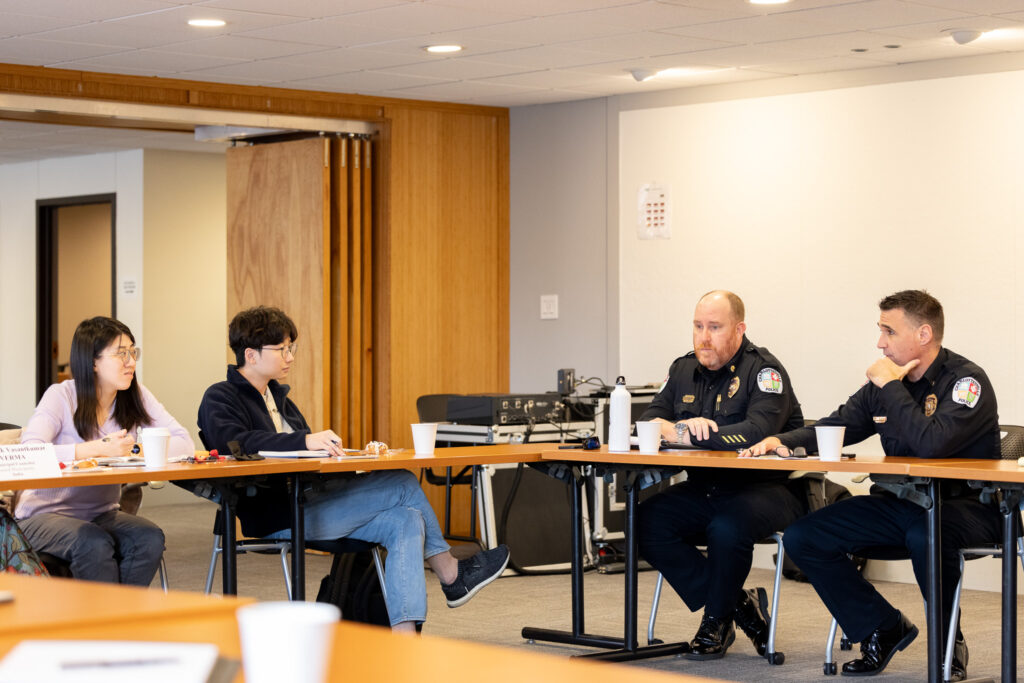
University of Virginia Professors of Politics
Both visiting groups had an opportunity to meet with Professor Jennifer Lawless from UVA’s Batten School of Leadership and Public Policy and Associate Professor Paul Freedman from UVA’s Department of Politics. These conversations served as a valuable summation of individual perspectives discussed throughout the community. Jennifer and Paul made clear that American media has transformed the electoral landscape in recent years. As objective journalism declines, candidates are doing more with paid advertising that leverages emotions over values. Specific individuals willing or able to engage in an election may vary depending on the particular channels used by candidates. In summary: those working to promote engagement in the democratic process must consider the accessibility of accurate information in tandem with voters’ willingness to trust and act upon what reaches them.
—
View our full gallery of photos from these two IVLP programs here: https://www.flickr.com/search/?user_id=126330907%40N06&sort=date-taken-desc&text=elections&view_all=1

